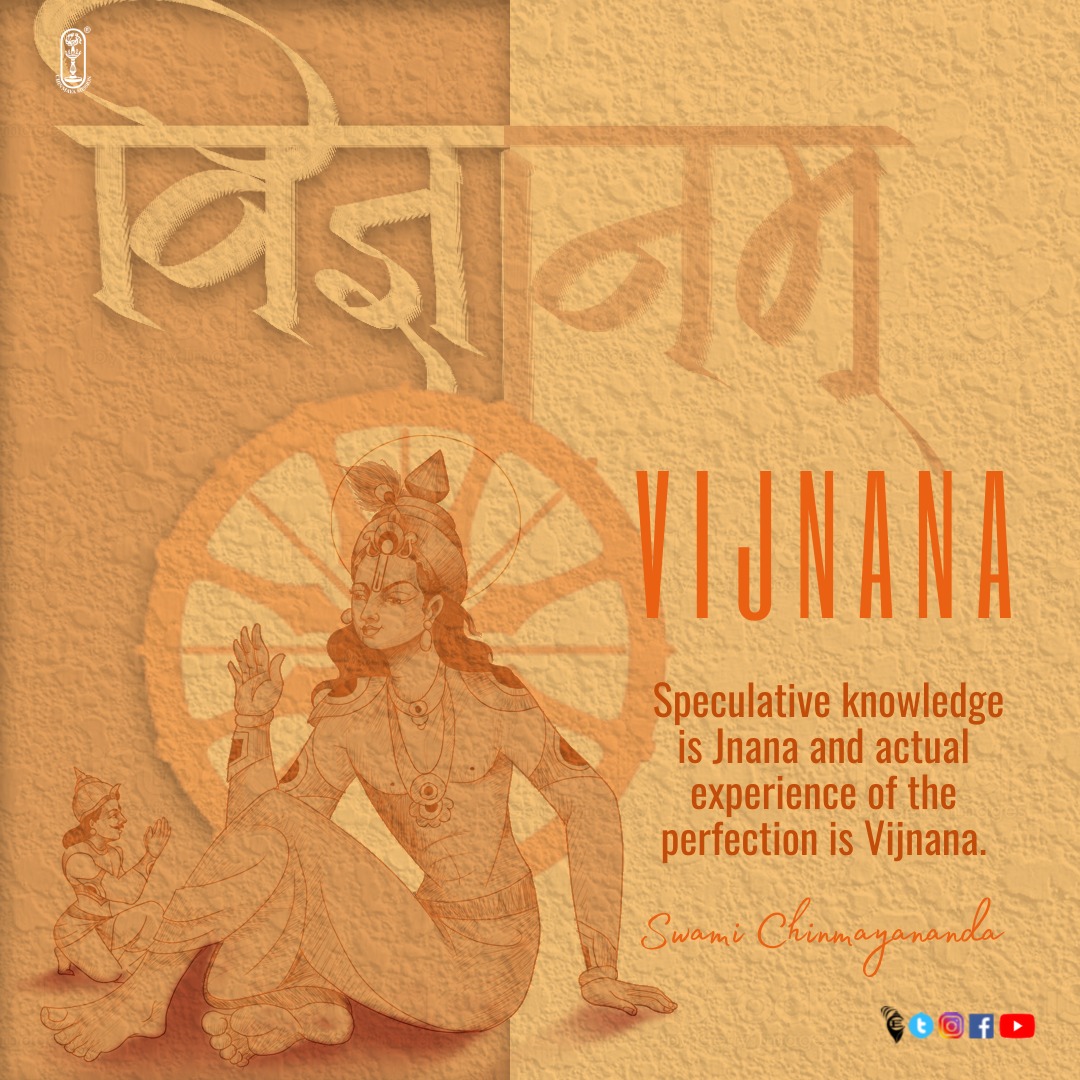The Philosophy of the Bhagavadgita : 14.5 - Swami Krishnananda.
=======================================================================
====================================================================
Monday, December 13, 2021. 8:00. PM.
The Philosophy of the Bhagavadgita-14-5.
Chapter-14. The Glory and Majesty of the Almighty-5.
======================================================================
What one feels at that time is, again, poetically portrayed in the great hymnology which fills the whole of the Eleventh Chapter. It does not actually mean that one will be speaking something there. The poet of the Gita has to express himself in language, and so he uses a poetic style to demonstrate the feeling of the soul at the time of this divine possession and experience, at which time it becomes giddy with God-Consciousness. The soul does not utter words in human language. It shudders from the roots and shakes at the very bottom, and it does not think and feel but melts away gradually into the awe.
This process of the evaporating of the soul-consciousness into the Consciousness of All-Being is the significance behind the exuberant description of the prayers which Arjuna seems to have offered when he was blessed with the Divine Vision. The functions of the individual cease automatically, and completely. Neither does one speak, nor see, nor hear; nor is there any particularised sensation. All the empirical faculties are brought together into a concentrated oneness and get gathered up in the soul within instead of operating separately as in ordinary perception. The whole being is centred in one indivisible splendour of the soul, and it is the soul that flies to the Supreme Soul. And even as the soul that beholds this vision does not express itself in any language but indescribably transforms itself into the All-in-All God, so, too, God does not speak in a language, in the words that we utter through our mouths. Yet, a response from this Mighty Being seems to come in answer to the prayer of the soul that beholds the vision, and the Almighty speaks in a transcendental language of the unity of everything with everything else.
The feeling or the notion in the individual that it does anything at all is a fallacy, and here in the context of the Mahabharata, where the Bhagavadgita occurs, Arjuna is told that the war has already taken place, it is already concluded, victory has already been won, there is nothing more to be done by anyone. The individuals are just instruments. “In a timeless comprehension, I have done everything that is to be done, in the firmament of infinity and eternity.” To Arjuna, to us, from the point of view of time, the Mahabharata might appear to be a future event that is yet to take place. But to the Omnipresent Absolute, which has neither time nor place, it has eternally taken place and its results are decided once and for all.
It is added that everyone cannot have this vision. It is not that merely for the asking it suddenly comes, unless the asking comes from the soul. Our little charities, a few good deeds and some studies that we make are inadequate for the purpose. God is not a cheap substance that one can purchase for a few dollars or pounds. Impossible is this vision; even the gods crave to have this blessing. Any amount of learning or scriptural lore is insufficient for this fulfilling attainment. All the austerities that we may perform, all the efforts that we can think of from our side cannot promise us this blessedness of God-vision.
Then what is the solution? How do we get it? A whole-souled surrender of the self is the way. Unless the self melts away into the All-Self, this vision is not going to materialise itself. Any individualistic austerity, or, for the matter of that, any performance whatsoever which retains the individuality intact, even in the name of religion or spiritual practice, will go counter to the requirements of this great realisation. The condition is this: In our spiritual practices, do we long to maintain our individualities? Though it is true that we are spiritually engaged or religiously conscious, are we secretly hugging our own ego or personality? If this is to be there, the vision is far off. Whoever performs works for His sake, whoever regards Him as the Supreme Soul, and bears not enmity to anyone, looks upon all things with an equal vision, with no difference of high and low, or even better or worse, whoever wholeheartedly considers this wonder as the only goal of life, and everything else as merely an accessory or an antecedent to this great Realisation, one who is possessed with this spirit of aspiration which transfigures the whole of one's being in the love of the One God, one who seeks God, and God alone, and nothing else, in the highest sense of the term—to such a person God-Vision will be an immediate experience. Inasmuch as there is no isolation or individuality in God, to have His experience or Vision, one must also be free from the individuality of the self.
It appears that God alone can behold God. God experiences; God realises God. It is not that man, as a man, maintains himself as man, and then reaches God. It is not you or I that can attain God, but God-vision bursting itself within itself, and God looking at Himself in God. It is a mystical enigma, a secret available only to sincere souls, and everyone is blessed with this beatitude of experience when the heart is sincere.
End.
Next : 15. The Way and the Goal :
===============================================================================






Comments
Post a Comment